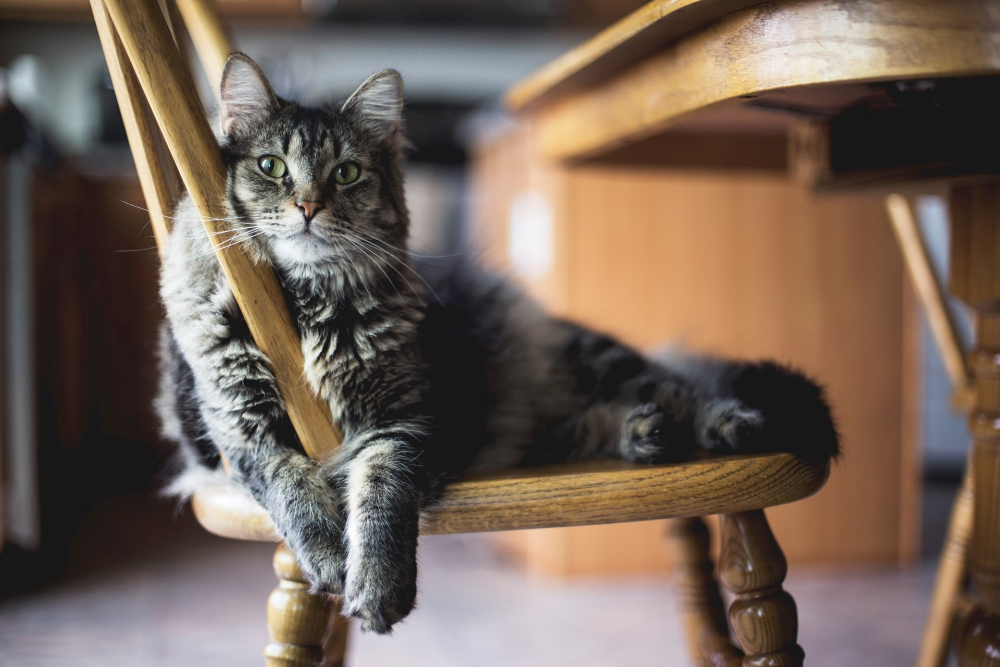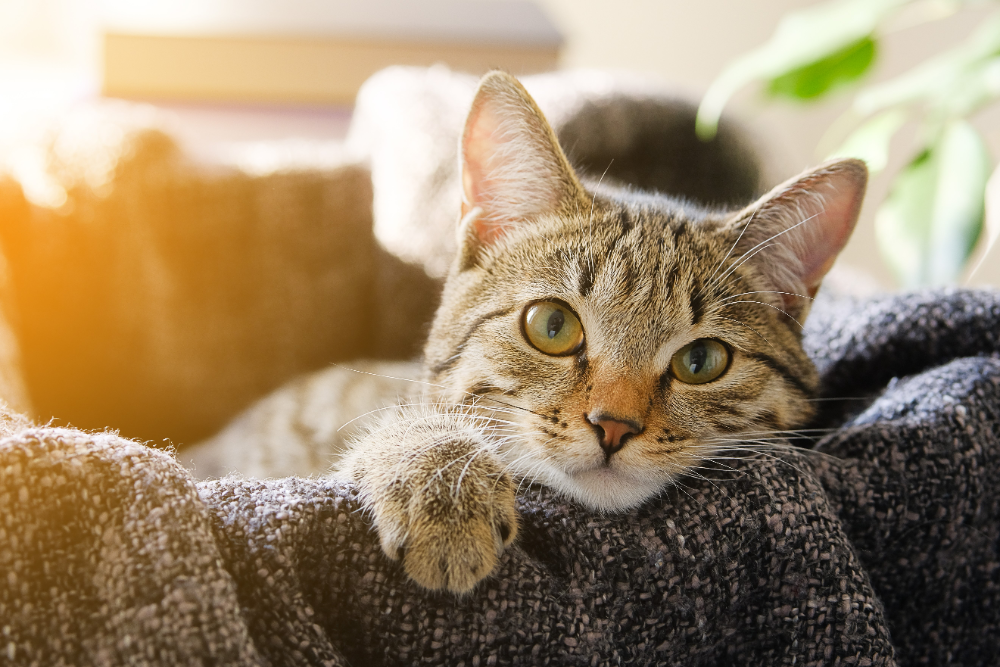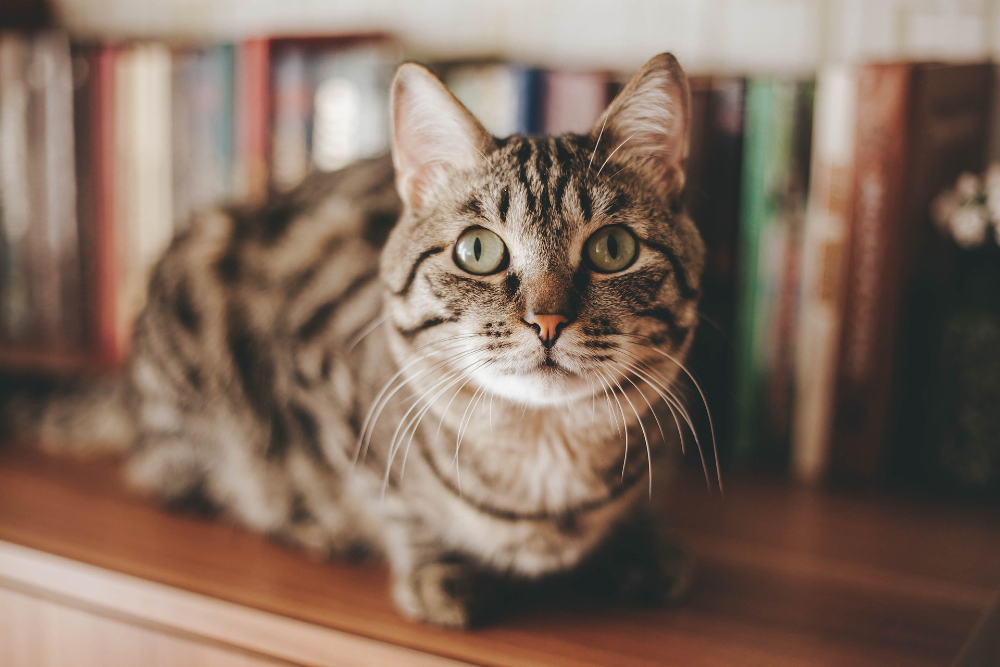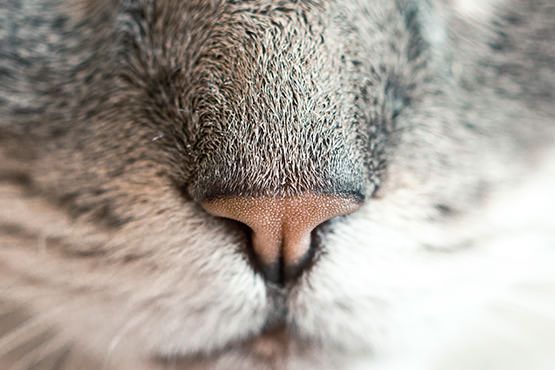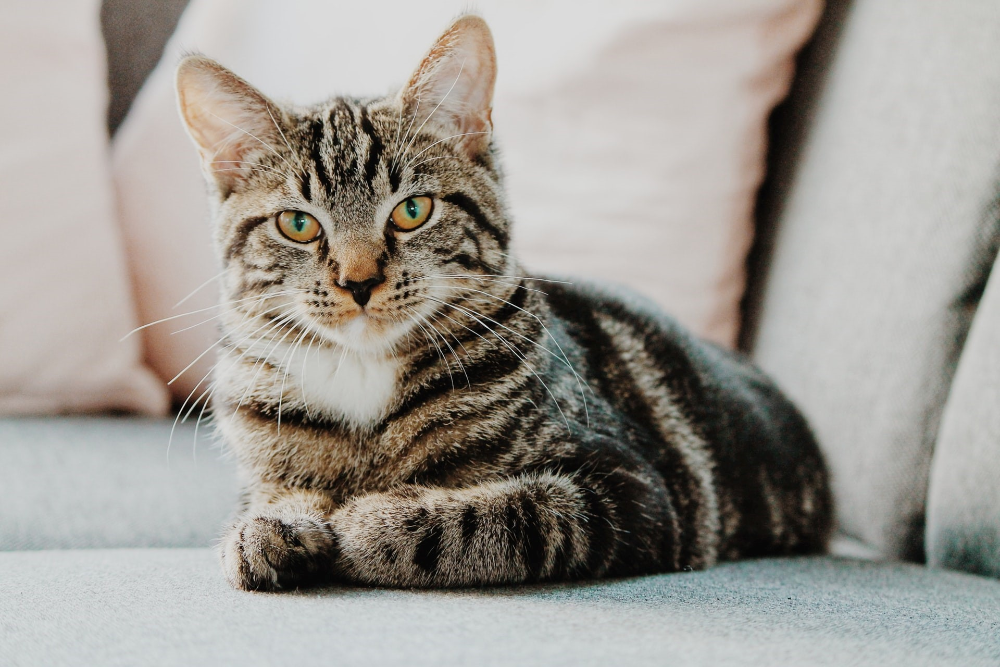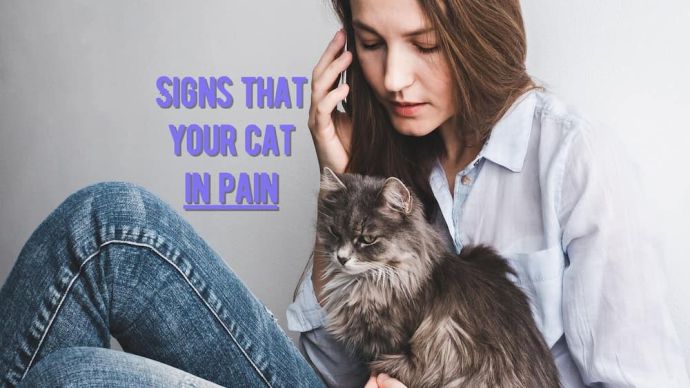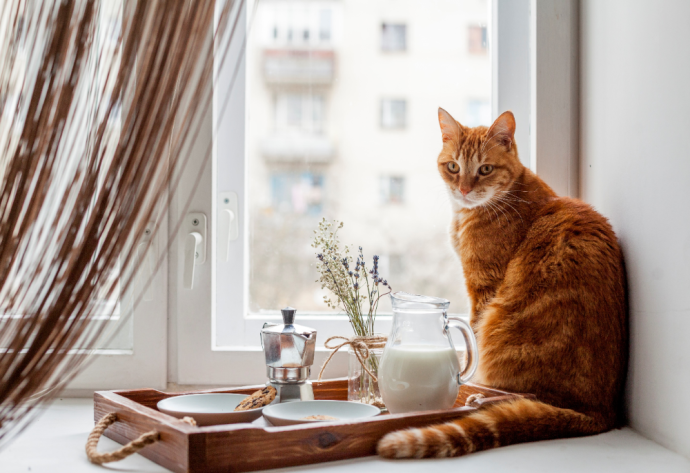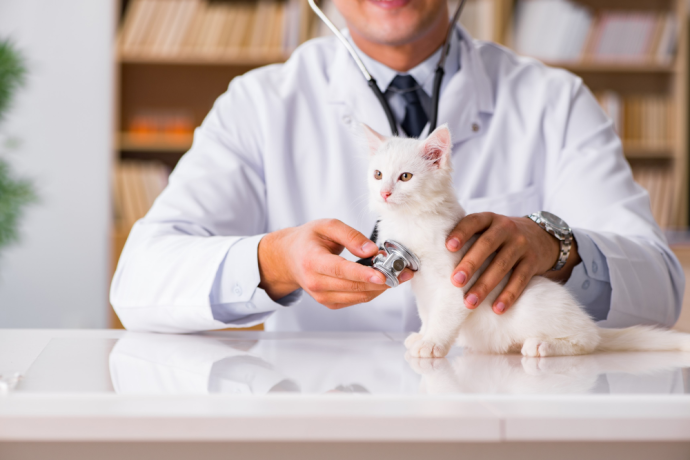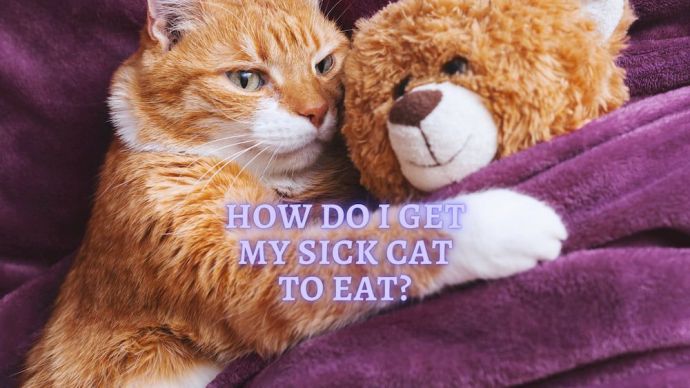Signs your Cat is Getting Old: Elderly Cat Care
Written by:
Author: Dr. Kathryn Dench
Dr. Kathryn Dench is an experience veterinary with over 10 years' experience in small animal and exotic pet medicine. Kate qualified from Cambridge University Veterinary School in 2007. Kate has worked in a number of veterinary practices in the UK. She has extensive experience in the medical care of pet species, from dogs and cats to chickens and chameleons! In free time, Kate writes pet advice in order to ensure that owners are receiving the best possible information on how to care for their pets.
View all 9 articlesLearn about our editorial process and veterinary review board.
Viewed: 599
Updated on: 07/21/2021
Aging is one of those unavoidable facts of life. Sooner or later, our feline companions will start to show signs of getting older. In this article, we explore the topic of aging in cats, and what to expect as our pets begin to experience old age.
How long do Cats live?
Our domestic pets are closely related to small wild cats, such as the Leopard Cat living in the jungles of south-east Asia. These wild felines are thought to have an average lifespan of between two and 13 years, with the most common causes of death being injury and infection. In comparison, our domestic pets benefit from proper nutrition, appropriate veterinary care, and the protection of our homes, and so it is not surprising that they live longer than their wild cousins.
The average lifespan of a domestic pet is between 13 and 17 years, with some cats live into their 20’s.[1] While our pets are clearly benefiting from our care and attention over the years, this longer lifespan means they will eventually experience old age signs. As owners, we must pay attention to these signals and do what is needed to keep our feline friends comfortable and healthy into their later years.
Domestic pets are often classed as “seniors” from around 10 years of age. That is not to say that your pet will necessarily show symptoms of aging at that point, but changes to their joints and internal organs may already be starting at that age, and this is a good time to start making changes to their lifestyle to support their aging systems.
What happens to Cats as they get older?
Some pets can live into their late teens still being as spritely as a kitten. However, many cats start to show signs of aging between 12 and 16 years of age. Cats are often so independent, it is possible to go for several days without really spending time paying attention to what your pet is doing. The more we pay attention to our older pets, the quicker we will notice any changes of routine or behavior that could indicate a problem. Make it part of your daily routine to spend at least 5 minutes focusing on your pet so you can easily spot any warning signals. Common symptoms spotted by owners of elderly cats are:
- Appetite changes, either eating more or less than before
- Drinking more than before
- Being less active or not jumping as much as they used to
- Looking ‘scruffy’ or poorly groomed
- Overgrown claws
- Sleeping more
- Being more vocal
- Seeming confused or stressed
- Eyesight or hearing problems
- Lumps and bumps
- Smelly breath
If you notice any of these symptoms in your pet, it is a good idea to get them checked by your veterinarian, who will be able to assess your pet and determine if there is an underlying medical cause for your cat’s change in behavior.
What Medical Conditions can affect older Cats?
There are certain conditions that cats get more prone to as they get older. These include:
Joint problems
Older cats can suffer from joint problems such as arthritis. Often the first symptom is that your pet isn’t as agile when they are jumping as they used to be. Another common symptom that may not initially appear to be a joint problem is that your pet doesn’t groom their fur as well anymore, particularly over their lower spine. This can be due to pain when twisting around to groom this part of their fur.
Teeth problems
Cats can be prone to teeth problems as time goes on, particularly in a type of cavity known as a Feline Oral Resorptive Lesion, which can cause a lot of pain. Your pet may refuse to eat dry food and may even salivate or paw at their mouth if the pain is severe. In more subtle cases, the only symptom may be a bad smell from the mouth. If you suspect your pet has a tooth problem, ask your vet to check as soon as possible.
Hormonal conditions
There are a number of hormonal imbalances that can affect cats as they get older. These include diabetes and hyperthyroidism, amongst others. The symptoms can include drinking more, appetite changes, urinating more, and behavioral changes such as becoming more aggressive or more lethargic. If you notice these symptoms, it is important to take your pet for a check-up where your vet will be able to assess them.
Internal organ problems
As with all of us, as we get older, the effectiveness of cats’ internal organs can decrease as they get older. Kidney problems and heart conditions are not uncommon in older pets. Often treatment for these conditions is based on supporting organs to function to the best of their capacity, through medications, changes in diet, and lifestyle.
Senile dementia
Older pets can suffer from senile dementia, which can cause a range of behavioral changes from seeming grumpy or confused, sleeping more often, toileting in the house, or aggression. However, as discussed above, some behavioral changes have underlying medical causes other than senile dementia or old age, so it is always good to report any changes to your veterinarian so that any medical issues can be checked.
What can I do to help my Older Cat?
As owners of older pet, there are steps we can take to keep them in good health and make sure they are comfortable.
Grooming
If your older pet is struggling to keep their coat in good condition, they may benefit a lot from you grooming them with a soft brush, particularly for longer-haired breeds. As pets get older, their claws are also prone to getting over-long, as they cannot retract their claws so well to release the outer layers of the claw as they grow. Left like this, the claws can actually grow around and end up digging into the paw. Check your older pet’s claws regularly, and if they are getting long make sure they have regular manicures. Your veterinary clinic will be able to help cut the claws or show you how to do it safely if you want to do it yourself at home.
READ MORE: Cat Backpack Reviews
Regular medical care
Routine veterinary care, such as vaccinations and preventative medication against worms, fleas, and ticks are even more important in our elderly cats, as their aging immune system is sometimes unable to fight off infections as effectively as when they were younger. The specific medications that are recommended vary from one area to another depending on how prevalent different infections and parasites are from place to place, so your local veterinary clinic will be able to advise you best on what is needed to keep your older pet protected.
Diet
There are several commercial diets designed for senior cats, to support their internal organs as time goes by. For example, compared with standard adult cat foods, those for senior pets often contain easily digestible proteins to reduce the kidneys’ workload and add vitamins and minerals to keep joints healthy. Senior cats are often less active and at risk of becoming overweight, so many diets aimed at this age group are calorie-controlled to make sure they get the energy they need without gaining excess fat. Conversely, very elderly pets can have a reduced appetite and so need more calorie-dense food. It is recommended to feed your pet the diet suggested for their age, to make sure they are getting the correct nutrition.
Stress management
Cats are prone to stress, and older cats even more so. Stress is often caused by a conflict with other cats for territory, food or litter trays, but can also be caused by changes in the home and loud noises. Keep an eye out for signs of stress in your pet, which could include being temperamental, urinating in the house, over-grooming and eating less. As well as trying to reduce stressful events for our older pets, your veterinary clinic or pet shop will be able to recommend hormone-based or herbal calming sprays that may help your pet relax.[2]
READ MORE: Cat Eye Injury
Adjustments around the home
If we stay in tune with our older pets, we can make adjustments in our homes to accommodate them as they age. For example, a cat who normally toilets outside but has started toileting indoors could benefit from a litter tray inside the house. Similarly, a pet who normally sleeps in a high spot on top of the cupboard but is having difficulty jumping may appreciate having a cozy bed set up somewhere more accessible. There are some good ideas for helping keep an older pet active on the International Cat Care website.[3]
What happens if my Cat is dying of Old age?
While it is not something we want to think about, it is inevitable that eventually, our cats will pass away. For some, it can be a sudden and quick thing, with no real warning signs. For others, we may be aware that they are sick and even be under treatment for a while to help manage their condition. Sometimes, our pet’s quality of life can become so poor, either through sickness or mobility problems, or confusion, that we have to decide to have them euthanized to stop them from suffering.
Whether the loss is an unexpected shock or something we have had the opportunity to prepare ourselves for, the reality of the sudden absence of our beloved pet from our lives is painful. Your veterinary clinic may have resources to help owners and their children during this time of grief, and some online resources might help. [4]
Conclusion
While it is not possible to stop the clock for our older felines, by keeping a close eye on them and adjusting to their lifestyle to help their aging bodies, we can keep them as healthy and comfortable as possible during their later years.
Article Sources:
- “Aging in Cats.” Wikipedia, 5 Jan. 2021, en.wikipedia.org/wiki/Aging_in_cats.
- “Spotting Signs of Cat Stress – How to Care.” Cats Protection, cats.org.uk/help-and-advice/health/cat-stress.
- “Elderly Cats – Special Considerations.” International Cat Care, 30 July 2018, icatcare.org/advice/elderly-cats-special-considerations/.
- Robinson, Lawrence. “Coping with Losing a Pet.” HelpGuide.Org, 1 Sept. 2020, helpguide.org/articles/grief/coping-with-losing-a-pet.htm.
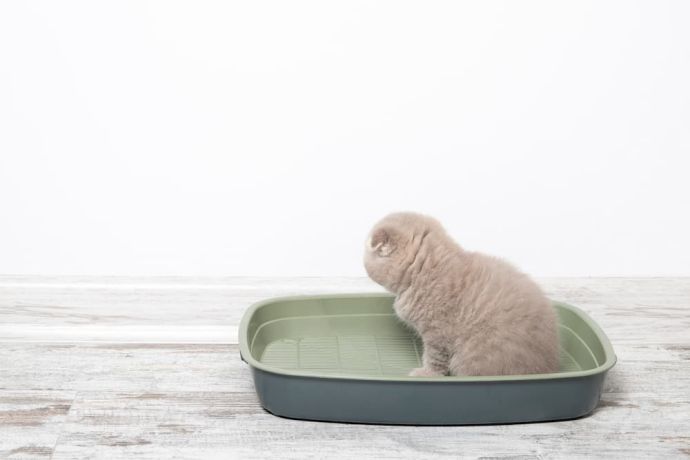 Cat Veterinary Tips How to Get Rid of Cat Urine Smell in Your House? (Vet Advice)
Cat Veterinary Tips How to Get Rid of Cat Urine Smell in Your House? (Vet Advice) - 325
- 0
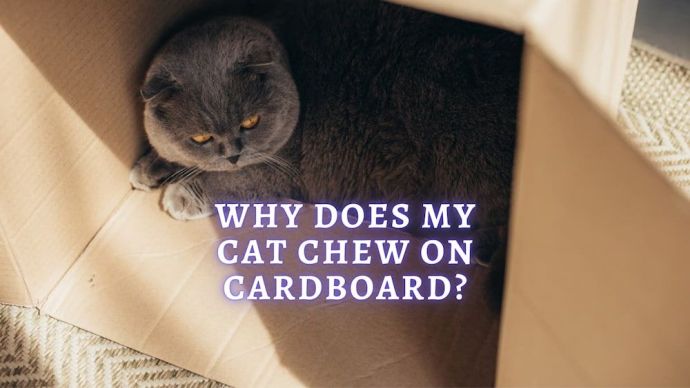 Cat Veterinary Tips Cat Chewing Cardboard: Why Does My Cat Chew On Cardboard? Vet Advice
Cat Veterinary Tips Cat Chewing Cardboard: Why Does My Cat Chew On Cardboard? Vet Advice - 4382
- 0
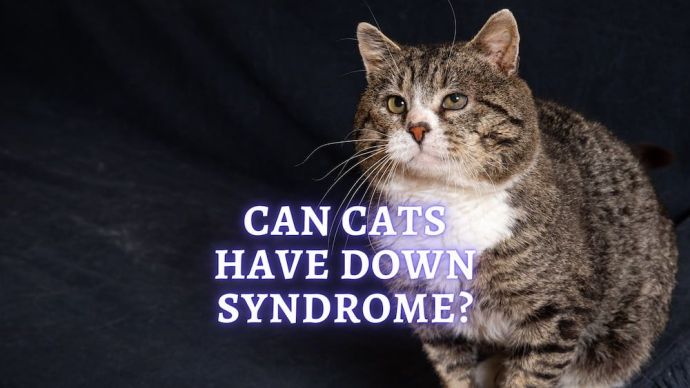 Cat Veterinary Tips Down Syndrome Cat: Can Cats Have Down Syndrome? (Vet Advice)
Cat Veterinary Tips Down Syndrome Cat: Can Cats Have Down Syndrome? (Vet Advice) - 1360
- 0
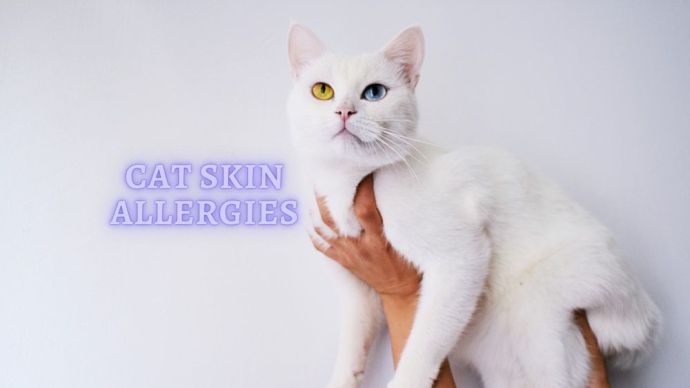 Cat Veterinary Tips Skin Allergies in Cats: Causes, Symptoms, and Treatment (Vet Advice)
Cat Veterinary Tips Skin Allergies in Cats: Causes, Symptoms, and Treatment (Vet Advice) - 542
- 0
 Cat Care Why Does My Cat Attack My Legs? 10 Reasons Why and What To Do About It (Vet-Approved Advice)
Cat Care Why Does My Cat Attack My Legs? 10 Reasons Why and What To Do About It (Vet-Approved Advice) - 46013
- 21
 Cat Veterinary Tips Cat Stomach Gurgling: Vet Advice on Why is Your Cat Stomach Gurgling?
Cat Veterinary Tips Cat Stomach Gurgling: Vet Advice on Why is Your Cat Stomach Gurgling? - 36469
- 4
 Cat Veterinary Tips My Cat Lost its Voice: Can Cats get Laryngitis? (Vet Advice)
Cat Veterinary Tips My Cat Lost its Voice: Can Cats get Laryngitis? (Vet Advice) - 23554
- 13









